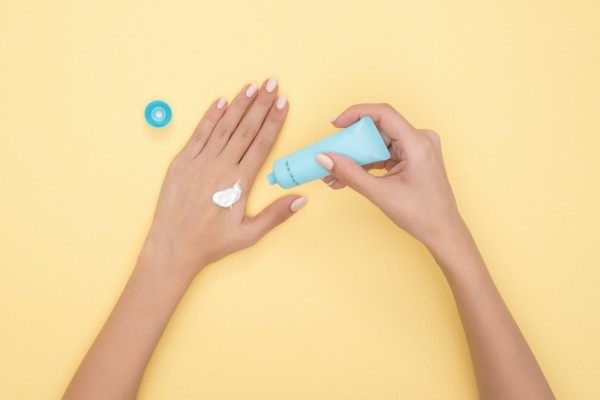 (Photo : Pexels/Moose Photos)
(Photo : Pexels/Moose Photos)
No matter the number of products or steps you incorporate in your daily skincare routine, experts unanimously advise against skipping one essential step: applying sunscreen.
Regularly wearing sunscreen is one of the best and simplest ways to take care of your skin's health and appearance, no matter your age, as it helps prevent sunburn, skin cancer, and premature aging, according to an article published by Johns Hopkins Medicine and reviewed by dermatologist and professor Dr. Anna Lien-Lun Chien.
The sun's ultraviolet (UV) rays can harm skin cells, making it crucial to protect yourself from their damaging effects.
"The sun does offer benefits," Dr. Shereene Idriss, a content creator and a board-certified dermatologist, explained in a YouTube video. "However, it also comes with a severe risk, and everything in life is a nuance. It's not black. It's not white. It's shades of gray, and knowing how to protect your skin within those shades of gray will also allow your skin to reap the benefits of the sun."
To make the most of your sunscreen application, here are 10 expert sunscreen tips from dermatologists.
1. Apply sunscreen daily, indoors or outdoors
While many likely think sunscreen isn't necessary indoors, dermatologist Ava Shamban, according to Allure, warned of UV exposure from rays that pass through glass. UVA, the expert said, is constant, while UVB, which is blocked by glass, peaks midday.
2. Pick sunscreen with SPF 30+ or above
According to the American Academy of Dermatology (AAD), dermatologists recommend opting for a sunscreen with an SPF of 30 at minimum, as it shields against 97% of the sun's UVB rays. While higher SPF numbers offer slightly increased UVB protection, no sunscreen can completely block all UVB rays from the sun.
3. Apply sufficient sunscreen
How much sunscreen is enough? According to board-certified dermatologist Carmen Castilla, as reported by Allure, you can follow the "two-finger" rule for your face and neck. Use the length of your pointer and middle fingers to dispense sunscreen, ensuring ample coverage for protection. However, she also advised applying more if unsure.
The rule originated from research conducted in 2002 by a team of physicians from New Zealand, according to Harvard-trained dermatologist Kim Nichols.
4. Wear sunscreen minutes before going outdoors
According to AAD, if you wait to put on sunscreen until you are in the sun, your skin will stay exposed and may burn. Dr. Nichols recommends applying SPF 20 minutes before sun exposure for proper absorption into the skin.
5. Reapply sunscreen every two hours
Sunscreen should ideally be reapplied at least every two hours while outdoors, especially after swimming or sweating. However, if you work indoors away from windows, a second application might not be necessary, according to the Johns Hopkins Medicine article.
6. Choose a broad-spectrum sunscreen
The Skin Cancer Foundation suggested using a broad-spectrum sunscreen. Dr. Steven Wang, a board-certified dermatologist, emphasized that sunscreens with higher SPF and broad-spectrum coverage offer better protection against sunburn, UVA damage, and DNA damage.
7. Apply sunscreen generously and apply it to every exposed skin
New York City-based board-certified dermatologist Debra Jaliman recommended wearing sunscreen on the entire face, including the ears, neck, and hands, according to Allure.
8. Protect your lips too
According to Health, Dr. Jeannette Graf, assistant clinical professor of dermatology at Mount Sinai Medical Center in New York, said that, like the rest of your skin, your lips are susceptible to UV rays, which means that you also need lip balm containing SPF for lip protection.
9. Apply sunscreen even during winter, rainy days, or cloudy days
According to AAD, your skin is subjected to the harmful UV rays from the sun even on cloudy days and in the winter, so sunscreen is still a must on those days.
10. Discard expired or old sunscreen
Dr. Graf, according to Health, advises discarding sunscreen bottles that have been around for two years or more as they can lose effectiveness over time.

